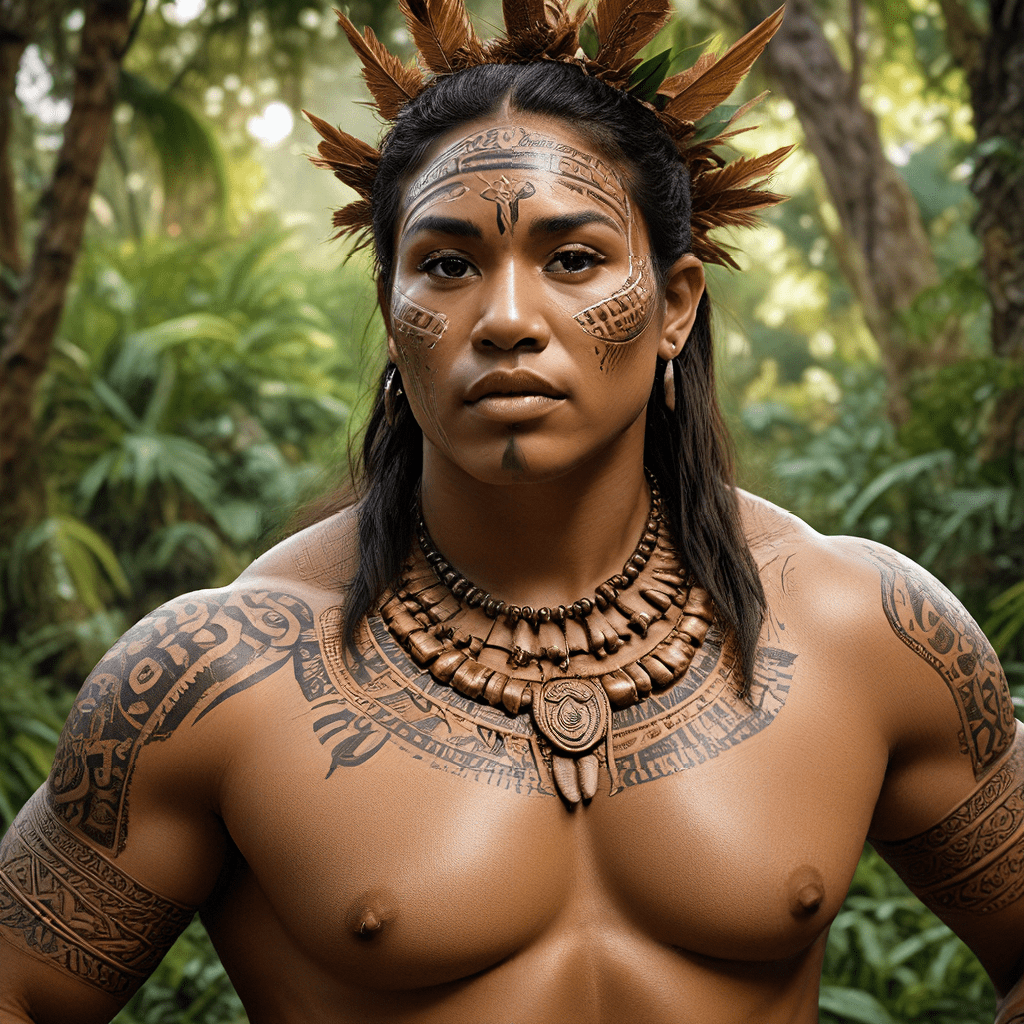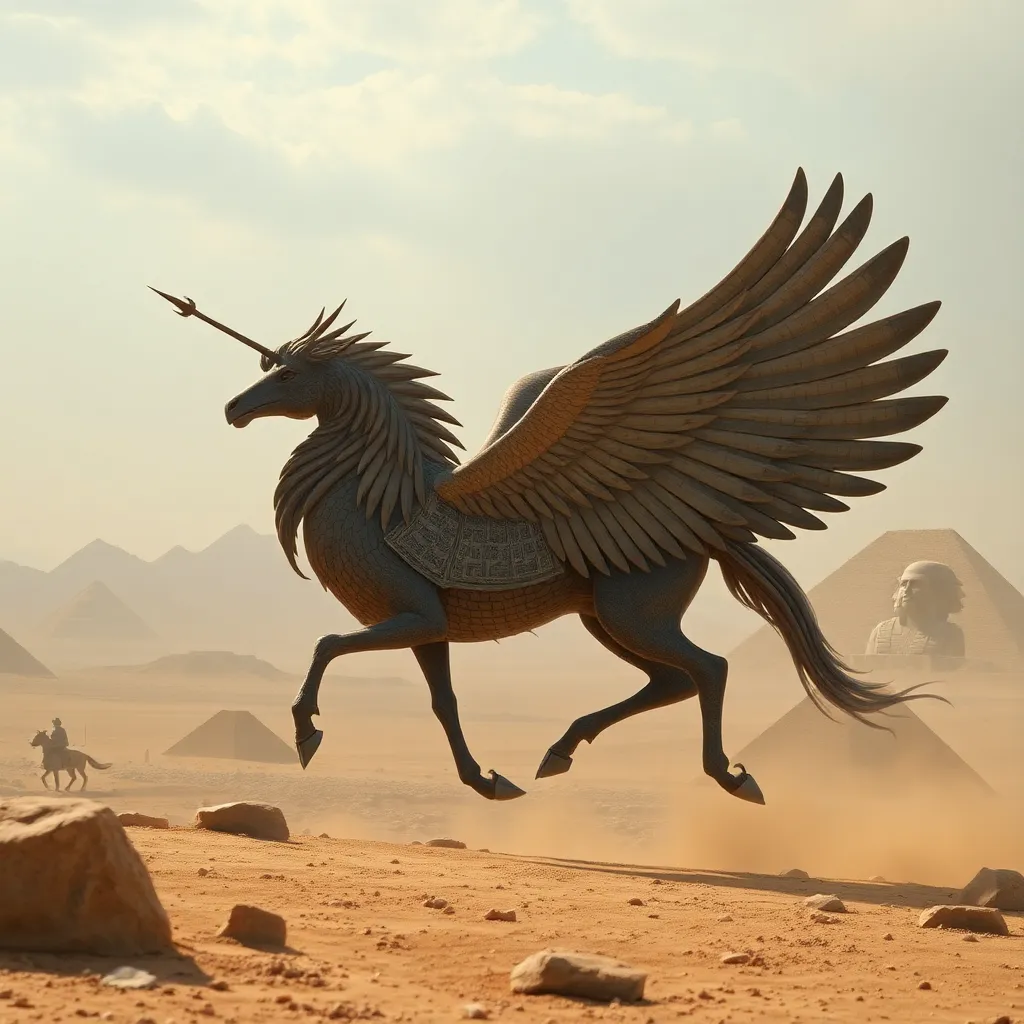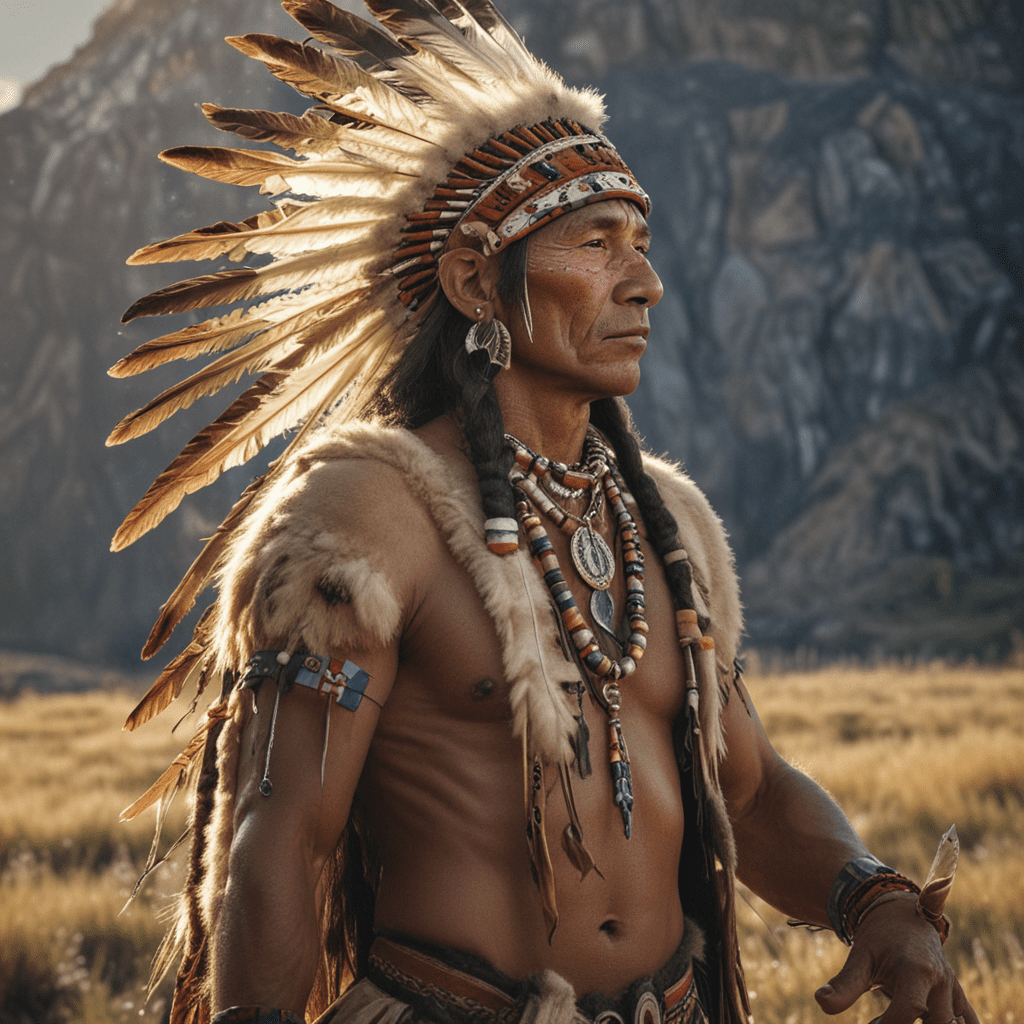Maori Mythology Heals: The Secrets of Traditional Medicine
The Origins of Life and Healing: The Maori Creation Myth
The Maori creation myth, known as "Te Kore" (the void), tells the story of how the universe and life itself came into being. In this story, the gods, known as "atua," played a key role in shaping the world and creating humans. According to Māori belief, the gods brought forth life from the void, and from this act of creation, the interconnectedness of all things, including human beings, the natural world, and the spiritual realm, came to be. This powerful understanding of creation is the foundation for traditional Māori medicine, where healing is viewed as a journey back to balance and harmony with these interconnected forces.
The Importance of Tapu (Sacredness) in Maori Medicine
The concept of "tapu" is central to Māori culture and plays a significant role in traditional medicine. Tapu, meaning sacredness or forbiddenness, is a powerful force that governs the relationship between human beings and the natural world. Certain places, objects, and even people can be considered tapu, and it is important to respect these sacred boundaries. For example, the forests, rivers, and mountains are often viewed as tapu, and healers would often perform rituals in these places to tap into the power of the natural world for healing. This understanding of tapu underscores the importance of respect, reverence, and harmony with the natural world in maintaining health and well-being.
The Role of Atua (Gods) in Maori Healing Practices
Atua are gods, deities, or ancestral spirits that hold great spiritual power in Māori mythology. These powerful beings are believed to play a crucial role in all aspects of life, including health and healing. In Māori healing practices, Atua are often invoked for guidance, protection, and healing. Healers might seek the blessings of Atua before performing ceremonies, or call on them to intervene in cases of severe illness. The specific Atua invoked for healing would depend on the nature of the ailment and the healer's understanding of the individual's connection to the spiritual realm.
Tiki as Symbols of Healing and Protection
Tiki, carved figures often representing ancestors and deities, are powerful symbols in Māori culture. These figures are not mere decorations but embody the spiritual essence of the ancestors. Tiki are often used to protect against illness and misfortune, and their presence in homes or healing spaces can provide a sense of safety and peace. The powerful symbolism of Tiki reminds us of the interconnectedness between the physical and spiritual realms and underscores the importance of respecting the wisdom and traditions of the ancestors.
The Significance of Whakapapa (Genealogy) in Understanding Health
Whakapapa is the Māori concept of genealogy, which encompasses not only lineage but also the interconnectedness of all things. It is a powerful framework for understanding the relationship between individuals, their ancestors, and the natural world. Whakapapa plays a critical role in traditional Māori medicine, as it helps healers understand the individual’s unique history, their connection to the land, and the underlying causes of their illness. By understanding the individual's whakapapa, healers can tailor their treatment to address not only the physical symptoms but also the spiritual and ancestral factors that might be contributing to their illness.
The Connection Between the Natural World and Health
The Maori people have a deep understanding and respect for the natural world, seeing it as a source of life, sustenance, and healing. The land, rivers, and forests are not just resources but sacred spaces filled with powerful energies that influence human health and well-being. Traditional Maori medicine views illness as a disruption of the natural balance, often caused by an imbalance between the individual and their environment.
This connection to the natural world is reflected in many healing practices. For example, the use of plants and herbs is a cornerstone of traditional Maori medicine. The specific plants used for healing are often chosen based on their relationship to the individual's whakapapa and their connection to the land. Furthermore, natural elements like the sun, moon, and stars are also seen as powerful healing forces. Healing ceremonies and rituals often take place in nature, allowing the individual to reconnect with the natural world and restore harmony within themselves.
The Use of Plants and Herbs in Traditional Maori Medicine
Maori medicine is rich in the use of plants and herbs for healing. These plant medicines are not just remedies but are seen as gifts from the natural world, each possessing unique properties and a profound connection to the land. Plants have been used for centuries to treat a wide range of ailments, from common colds and stomach problems to more serious conditions.
These plants and herbs have been passed down through generations of healers, their use interwoven with ancestral knowledge and spiritual traditions. The choice of plant medicine is often tailored to the individual's needs and the specific nature of their illness. The healer considers the individual's whakapapa, their connection to the land, and the spiritual factors contributing to their illness.
Some of the most commonly used plants and herbs in traditional Maori medicine include:
- Harakeke (flax): Used for its fiber and medicinal properties. The leaves can be used to treat wounds, burns, and skin infections.
- Kowhai (Kowhai tree): The bark of the kowhai tree is used to treat coughs, colds, and sore throats.
- Manuka (Manuka tree): Known for its potent antibacterial properties. The honey from the Manuka tree is used to treat a variety of infections.
- Pohutukawa (Pohutukawa tree): The bark of the pohutukawa tree is used to treat skin conditions, such as eczema and psoriasis.
- Rata (Rata tree): The leaves and bark of the rata tree are used to treat wounds, burns, and infections.
The Importance of Ritual and Ceremony in Healing
Rituals and ceremonies play a vital role in traditional Maori healing practices. These gatherings are not just symbolic but are powerful tools for connecting with the spiritual realm, accessing ancestral knowledge, and fostering healing.
Ceremonies and rituals often involve prayers, songs, chants, and the use of sacred objects. They can be performed by a healer, a family member, or the community as a whole, depending on the nature of the illness and the needs of the individual. The specific rituals and ceremonies used for healing vary widely depending on the specific situation and the beliefs of the community.
These healing rituals are not just about addressing the physical symptoms but also about restoring harmony between the individual, their ancestors, and the natural world. They are a way of acknowledging the interconnectedness of all things and seeking guidance and healing from the spiritual realm.
Modern Interpretations and Applications of Maori Mythology in Healthcare
Modern healthcare practitioners are increasingly recognizing the value of incorporating traditional Maori knowledge and practices into their work. This recognition is driven by a growing understanding of the interconnectedness of physical, mental, and spiritual health, as well as the importance of cultural sensitivity in providing care.
Modern interpretations of Maori mythology are being used to inform healthcare practices in a variety of ways:
- Integrating traditional healing practices: Modern healthcare practitioners are incorporating traditional Maori healing practices, such as the use of plants and herbs, massage therapy, and spiritual rituals into their treatment plans.
- Developing culturally appropriate approaches to care: Healthcare practitioners are striving to develop culturally appropriate approaches to healthcare, respecting the values and beliefs of Maori patients.
- Promoting self-care and holistic wellness: Modern healthcare practitioners are promoting the importance of self-care and holistic wellness, encouraging Maori patients to take an active role in their own health.
The Future of Maori Medicine and the Preservation of Tradition
The future of Maori medicine is bright, as there is a growing interest in preserving and revitalizing traditional knowledge and practices. This revival is driven by a desire to honor the wisdom of the ancestors, to promote holistic well-being, and to address the specific health needs of the Maori community. However, the preservation of Maori medicine faces challenges, including the need to bridge the gap between traditional and modern healthcare systems, to ensure the accurate transmission of knowledge across generations, and to address the impacts of colonization.
The future of Maori medicine lies in a balance between respecting tradition and adapting to the changing needs of society. By embracing both modern and traditional approaches to healthcare, Maori communities can create a healthcare system that is both effective and culturally appropriate.
FAQ:
What is the connection between Maori mythology and traditional Maori medicine?
Maori mythology is the foundation of their traditional medicine system. It provides a framework for understanding the interconnectedness of all things, the role of the spiritual realm in health and healing, and the importance of respecting the natural world.
How is Maori mythology used in traditional Maori medicine?
Maori mythology is used in many ways, including invoking gods and ancestors for healing, using rituals and ceremonies to connect with the spiritual realm, and understanding the individual's whakapapa (genealogy) to tailor treatment.
What is the role of the natural world in Maori medicine?
The natural world is seen as a source of life, sustenance, and healing in Maori medicine. Plants and herbs are used for medicinal purposes, and ceremonies and rituals often take place in nature to reconnect with the natural world.
How can I learn more about Maori medicine?
There are many resources available for learning more about Maori medicine. You can consult books, articles, and websites, or seek out traditional healers and practitioners. Remember to approach this learning with respect and humility.




